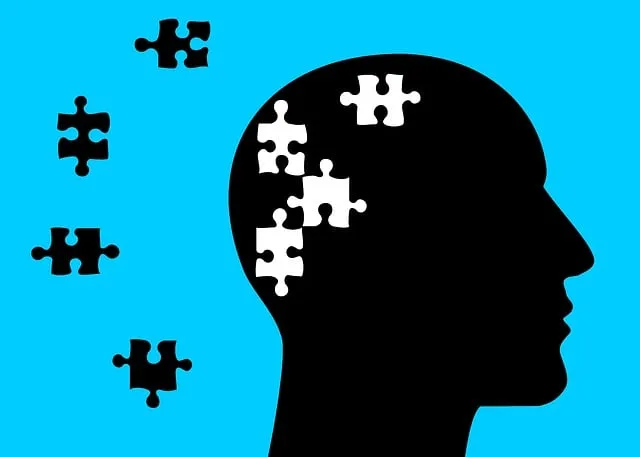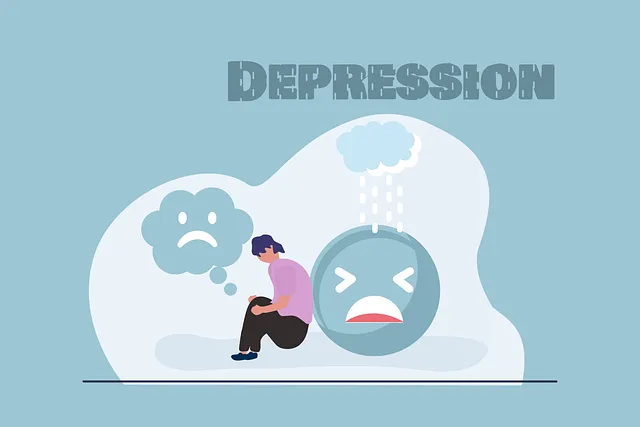The Kaiser Permanente Mental Health Center Littleton focuses on swift crisis intervention through specialized training, evidence-based practices, and open communication. Their approach prioritizes immediate stability, cultural competency, and long-term mental wellness. They initiate the Mental Wellness Podcast Series to raise awareness and reduce stigma. In crises, professionals use de-escalation techniques, safe spaces, and tailored stress reduction methods. Effective communication establishes trust for client safety. Post-crisis support includes continuous care programs with mindfulness meditation and recovery planning for sustained well-being.
“In times of crisis, swift and effective intervention can make a profound difference in an individual’s well-being. This article provides a comprehensive guide to crisis intervention strategies, drawing from the expertise of the Kaiser Permanente Mental Health Center Littleton. We explore crucial aspects such as identifying signs and triggers, immediate response techniques, and effective communication during crises. Additionally, we delve into post-crisis support and recovery planning, offering valuable insights for both professionals and those seeking guidance in navigating challenging situations at the Kaiser Permanente mental health center Littleton.”
- Understanding Crisis Intervention at Kaiser Permanente Mental Health Center Littleton
- Identifying Signs and Triggers for Potential Crises
- Immediate Response and Safety Measures
- Effective Communication Strategies During a Crisis
- Post-Crisis Support and Recovery Planning
Understanding Crisis Intervention at Kaiser Permanente Mental Health Center Littleton

At Kaiser Permanente Mental Health Center Littleton, crisis intervention is a cornerstone of their comprehensive mental health services. The center leverages specialized training and evidence-based practices to swiftly and effectively respond to individuals in acute distress. This approach not only stabilizes the person in crisis but also aims to foster long-term mental wellness. Staff members are adept at navigating complex situations, offering immediate support while connecting patients with ongoing care pathways.
The Mental Wellness Podcast Series Production initiated by the center plays a significant role in amplifying Mental Health Awareness and promoting understanding of various mental illnesses. Through engaging discussions and personal narratives, these podcasts contribute to the crucial Mental Illness Stigma Reduction Efforts, creating an inclusive environment where individuals can seek help without fear or hesitation.
Identifying Signs and Triggers for Potential Crises

Recognizing signs and triggers is a critical step in crisis intervention. At the Kaiser Permanente mental health center Littleton, professionals are trained to identify subtle cues that may indicate an individual is experiencing a mental health crisis. This includes changes in behavior, sudden shifts in mood, or notable declines in daily functioning. For instance, a patient’s abrupt withdrawal from social activities, extreme irritability, or persistent feelings of hopelessness could be red flags. Healthcare providers at the center are encouraged to foster open communication and create safe spaces for individuals to express their struggles, ensuring early identification of potential crises.
The process involves promoting cultural competency training among staff, enabling them to understand and appreciate diverse perspectives. This is particularly important given that personal experiences and expressions of distress can vary significantly across different cultural backgrounds. Additionally, building resilience through positive thinking and coping strategies can empower individuals to navigate challenging situations more effectively. By being attuned to these signs and triggers, the Kaiser Permanente mental health center Littleton aims to provide timely support and guidance, ultimately contributing to improved outcomes for those in need.
Immediate Response and Safety Measures

In moments of crisis, an immediate response is paramount, especially at a Kaiser Permanente mental health center like Littleton. The first step involves ensuring the safety and security of all individuals involved. This includes de-escalation techniques for both the affected person and any bystanders to prevent further escalation or harm. Trained professionals at these centers are adept at implementing quick yet effective strategies, such as establishing a safe space or using calming techniques, to stabilize the situation.
Effective communication strategies play a crucial role in this initial phase. The center’s staff must communicate clearly and empathetically to understand the individual’s needs and concerns. By combining these measures with stress reduction methods tailored to the crisis, professionals can provide immediate relief and set the foundation for more comprehensive long-term support, potentially avoiding more severe consequences. Public Awareness Campaigns Development can also be a valuable tool in promoting mental health literacy and ensuring individuals know when and where to seek help during such critical times.
Effective Communication Strategies During a Crisis

During a crisis intervention at Kaiser Permanente mental health center Littleton, effective communication is paramount to building trust and ensuring the safety and well-being of individuals in distress. Mental health professionals must employ active listening techniques, such as paraphrasing and summarizing, to understand the client’s perspective fully. Showing empathy and compassion cultivation practices can help de-escalate tense situations, fostering an environment conducive to open dialogue. The use of clear, calm language and nonverbal cues like maintaining eye contact or offering a supportive physical presence can also significantly impact the outcome of the intervention.
A structured risk assessment is essential prior to engaging in crisis intervention, allowing professionals to anticipate potential risks and develop tailored strategies. Incorporating mental wellness practices into crisis interventions not only benefits the client but also protects the well-being of mental health professionals, ensuring they remain grounded and effective throughout the process.
Post-Crisis Support and Recovery Planning

After an individual has navigated the immediate crisis, focusing on post-crisis support and recovery planning is essential for long-term well-being. This phase involves creating a structured framework to aid in healing and rebuilding. The Kaiser Permanente mental health center in Littleton offers specialized programs tailored to these needs, emphasizing continuous care. One effective strategy is incorporating mindfulness meditation practices, which have been shown to enhance mental wellness and reduce stress. These techniques empower individuals to regain a sense of control and foster resilience.
Additionally, recovery planning can include confidence-boosting activities and goals that align with personal aspirations. By setting achievable objectives and learning new skills, individuals can rebuild their lives with purpose. The support system plays a pivotal role here, ensuring the person feels connected and understood throughout the recovery journey.
Crisis intervention is a vital component of mental healthcare, and at Kaiser Permanente Mental Health Center Littleton, we are committed to providing effective guidance and support. By understanding crisis triggers, implementing immediate safety measures, and utilizing robust communication strategies, our team ensures individuals in crisis receive the best possible care. Post-crisis, we focus on recovery planning, offering comprehensive post-support to foster resilience and long-term well-being. This multi-faceted approach equips individuals with tools to navigate future challenges, ultimately enhancing their ability to cope and recover.






